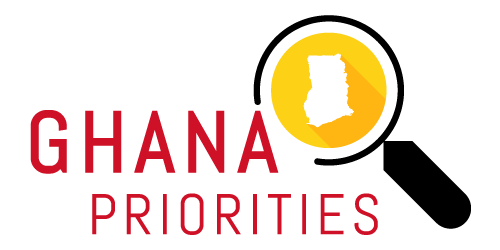Eminent Panel Findings
 Given the range of challenges facing Ghana, what should be the top priorities for policy-makers, civil society, donors and businesses? With limited resources and time, it is crucial that focus is informed by what will do the most good for each cedi spent.
Given the range of challenges facing Ghana, what should be the top priorities for policy-makers, civil society, donors and businesses? With limited resources and time, it is crucial that focus is informed by what will do the most good for each cedi spent.
Ghana Priorities is a partnership between the National Development Planning Commission (NDPC) and Copenhagen Consensus to conduct cost-benefit research and prioritization across a comprehensive agenda of responses to challenges. The prioritization is being undertaken and guided by an Eminent Panel of economists.
The Ghana Priorities Eminent Panel comprises:
• Mr Ken Ofori-Atta
• Prof. George Gyan-Baffour
• Prof. Kwesi Botchwey
• Prof. Sister Euginia Amporfu
• Prof. Augustin Fosu
• Prof. Ernest Aryeetey
• Prof. Finn E. Kydland
Eminent Panel approach
The Eminent Panel sought to address the research proposals with a view to answering the question: On which initiatives should additional resources be spent first?
The Eminent Panel intends these findings to be informative not just to the Government of Ghana, but also to others, including NGOs and charitable organizations.
The panel examined the proposals in detail. Each proposal was discussed with its principal author. The panel was informed by Sector Expert Commentaries, and by Panel members’ own critical appraisals and discussions on assumptions and methodology.
Prof. Samuel Kobina Annim, Government Statistician was the moderator of the Eminent Panel Conference, a three-day conference with the attendance of all panel members, except Prof. Kydland who participated virtually, hearing and discussing the evidence with all 28 teams of economists.
In ordering the proposals, the Eminent Panel was guided predominantly by consideration of social, economic and environmental costs and benefits.
The Eminent Panel acknowledged the difficulties that cost‐benefit analysis must overcome, both in principle and as a practical matter, but agreed that the cost‐benefit approach was a very important organizing method.
Each Eminent Panel member assigned his own ranking to proposals. The Eminent Panel’s ranking was calculated by taking the median of individual rankings.
The Eminent Panel jointly endorses the median ordering as representing their agreed view. In due course, the Eminent Panel’s individual commentaries shall be published in book form.
Download the Eminent Panel's signed ranking.
Ranking of Proposals
The Eminent Panel considers and prioritizes specific proposals to respond to challenges. This is different from ranking the challenges themselves. A low ranking of a proposal does not mean that the problem it addresses should be considered unimportant. In setting priorities, the Eminent Panel has taken into account the strengths and weaknesses of the specific cost‐benefit appraisals under review, and has given weight both to the institutional preconditions for success and to the demands of ethical or humanitarian importance.
In ordering the proposals, the Eminent Panel was guided predominantly by consideration of social, economic and environmental costs and benefits. The Eminent Panel acknowledged the difficulties that cost‐benefit analysis must overcome, both in principle and as a practical matter, but agreed that the cost‐benefit approach was a very important organizing method.
Based on the costs and benefits of the solutions and their own assessment, the panel ranked the proposals, in descending order of desirability, as follows:

